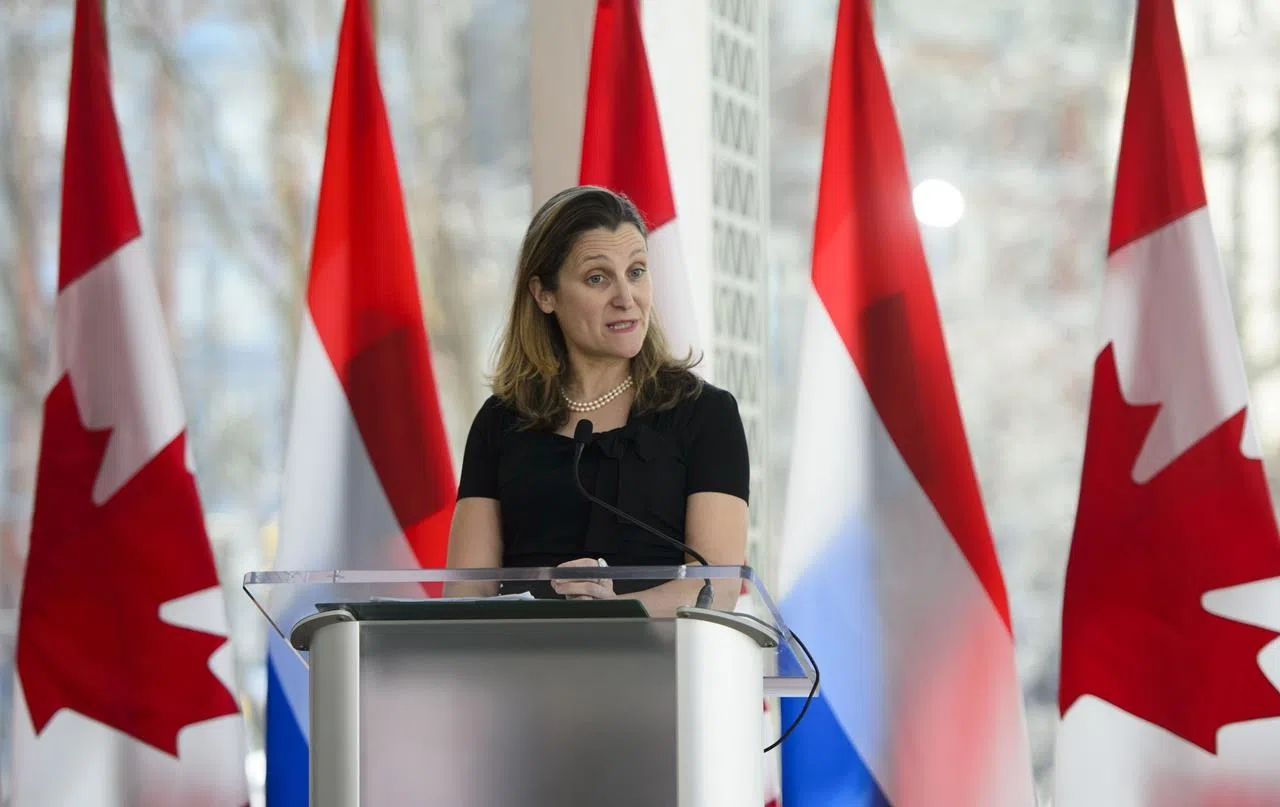
Freeland say lifting U.S. tariffs is part of ratification of the new NAFTA
OTTAWA — Foreign Affairs Minister Chrystia Freeland is linking the lifting of “absurd” U.S. tariffs on Canadian and Mexican steel to the ratification of the new North American free-trade deal.
Dealing with the tariffs — imposed by President Donald Trump under a controversial national-security provision of U.S. law — is a key part of the ratification process, Freeland said Wednesday.
Freeland says she’s heartened by the recent comments of American lawmakers who say the new trilateral trade agreement can’t be ratified with the “Section 232” tariffs in place.
“I am very glad to be hearing both in private meetings and in public statements from a number of U.S. senators, members of Congress, that they share Canada’s view that the 232 tariffs should be lifted,” the minister said in Ottawa before departing for a NATO summit in Washington where she was expected to press the issue further.


